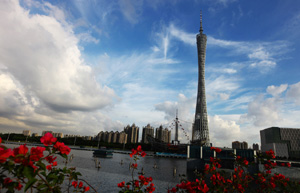China's policy fine-tuning continued through June, with the People's Bank of China (PBOC) and China Banking Regulatory Commission (CBRC) expanding the scope of its "targeted easing" and local governments unveiling further growth supportive measures. This helped both sets of PMIs to firm up in June: the official headline PMI rose from 50.8 to a 6-month high of 51, as the HSBC PMI printed above 50 for the first time in 2014. Against this backdrop, we expect China's upcoming June and Q2 data to show an economy still in, albeit modest, recovery.
Industrial production likely gained further traction, helping Q2 GDP growth to stabilize. As June's PMIs signaled, manufacturing activity seems to have stabilized. Moreover, power generation and crude steel production picked up during the first 20 days in June. As such, we expect industrial production growth to have recovered further from 8.8 percent year-on-year previously to around 9 percent year-on-year in June, so lifting its Q2 average growth marginally from 8.7 percent year-on-year previously to 8.8 percent year-on-year. This improvement of industrial activity may have offset the ongoing slide in property activity, helping Q2 headline GDP growth to stabilize at around 7.5 percent year-on-year, implying a sequential recovery from Q1's 6 percent quarter-on-quarter to 7 percent.
Exports likely remained solid; imports may have resumed growth in June. Although European business sentiment lost a little steam in June, the US ISM climbed up for the fourth straight month as consumer sentiment stayed robust. This, together with June's healthy new export orders PMI sub-indices, suggests that underlying external demand remains firm. Moreover, distortions from last year's over-invoicing issue should have continued to fade off. As a result, we expect China's exports likely expanded by 7.5 percent year-on-year in June. Meanwhile, recovering domestic demand and quickening production underpinned by "
Fixed investment growth probably continued to improve on the back of robust infrastructure spending. Property activity likely stayed weak, despite the recent marginal credit easing. High frequency data show that property sales in major cities continued to fall in June over the same period last year, despite a mild base effect. As such, we expect new starts continued its decline in June, probably at a double-digit pace given last year's high base, a still huge inventory overhang and developer funding difficulties. Consequently, property investment growth likely stayed depressed or weakened further in June. In contrast, infrastructure investment should have fared much better, fueled by ongoing policy support and increased funding. The recent export recovery should have also helped to cushion manufacturing investment from the impact of weak property activities. This, together with a relatively low base last year, may have pushed up overall FAI growth to 17.3 percent year-on-year in June. CPI remained stable, PPI continued to improve. Food prices stayed largely flat in June, with smaller gains in prices of pork, aquatics and egg, but a smaller decline in vegetable prices. This likely kept June CPI inflation stable at 2.5 percent year-on-year. Although seasonality has kept growth of domestic raw material prices sluggish, last year's low base may help to narrow headline PPI's year-on-year decline to 1 percent in June. Credit conditions remain accommodative. Although the recently imposed new interbank business rules have restrained growth of shadow credit such as bill acceptances and trust loans, corporate bond issuance has stayed solid thanks to ample interbank liquidity. In addition, the PBOC likely continued to encourage growth of on-balance sheet lending, in particular medium and long term loans to the corporate sector. As a result, we expect June's new RMB loans at RMB 900 billion, and new TSF at RMB 1.3 trillion ($209.6 million), both exceeding the same period last year, helping overall credit growth to stabilize at 16.4 percent year-on-year. Meanwhile, June's M2 growth may have been temporarily pushed up to around 14 percent year-on-year, thanks to a low base effect from June 2013's liquidity squeeze. The article is co-authored with other UBS economists Donna Kwok, Harrison Hu and Ning Zhang. The views do not necessarily reflect those of China Daily.
|
 |
 |
| Top 10 regions with highest GDP in China | Weaving profits, tradition with hand-made dresses |
